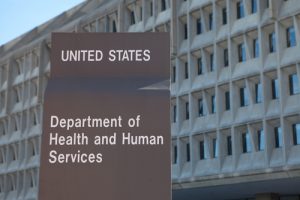
U.S. Rep. Jason Chaffetz (R-UT) and U.S. Sen. Chuck Grassley (R-IA) questioned the legality and constitutionality on Tuesday of a Department of Health and Human Services (HHS) memo regarding HHS employees’ communications with Congress.
The memo, which was sent on May 3, instructed HHS employees to notify the Office of the Assistant Secretary for Legislation before communicating independently with members of Congress, noting “by collaborating across agencies, we will achieve more of our goals.”
The memo also stated that employees’ cooperation with the policy on communication would “help us avoid unnecessary problems in our relationships with Congress.”
In a letter to HHS Secretary Tom Price, Chaffetz, the chairman of the House Oversight and Government Reform Committee, and Grassley, the chairman of the Senate Judiciary Committee, requested follow-up guidance to clarify the legal rights of HHS employees.
Although the language of the memo does not ultimately prohibit all direct communication from employees, “it forces employees to expose their communications with Congress to agency management, necessarily subjecting them to a significantly increased risk of reprisal,” the letter said.
The memo “contains no exemption whatsoever” for lawful, protected communications with Congress, which could lead to HHS employees interpreting the memo as a “prohibition” despite their constitutional rights, Chaffetz and Grassley said.
“These provisions are significant because they ensure that attention can be brought to problems in the executive branch that need to be fixed,” the letter states. “Protecting whistleblowers who courageously speak out is not a partisan issue — it is critical to the functioning of our government.”
In order to correct that potential violation of federal law, the lawmakers requested specific written guidance clarifying that HHS employees have a constitutional right to communicate directly and independently with members of Congress.
“Such guidance should inform employees of the whistleblower protections that apply, and make clear that the agency will not retaliate against any employee who chooses to exercise these rights,” Chaffetz and Grassley wrote.



